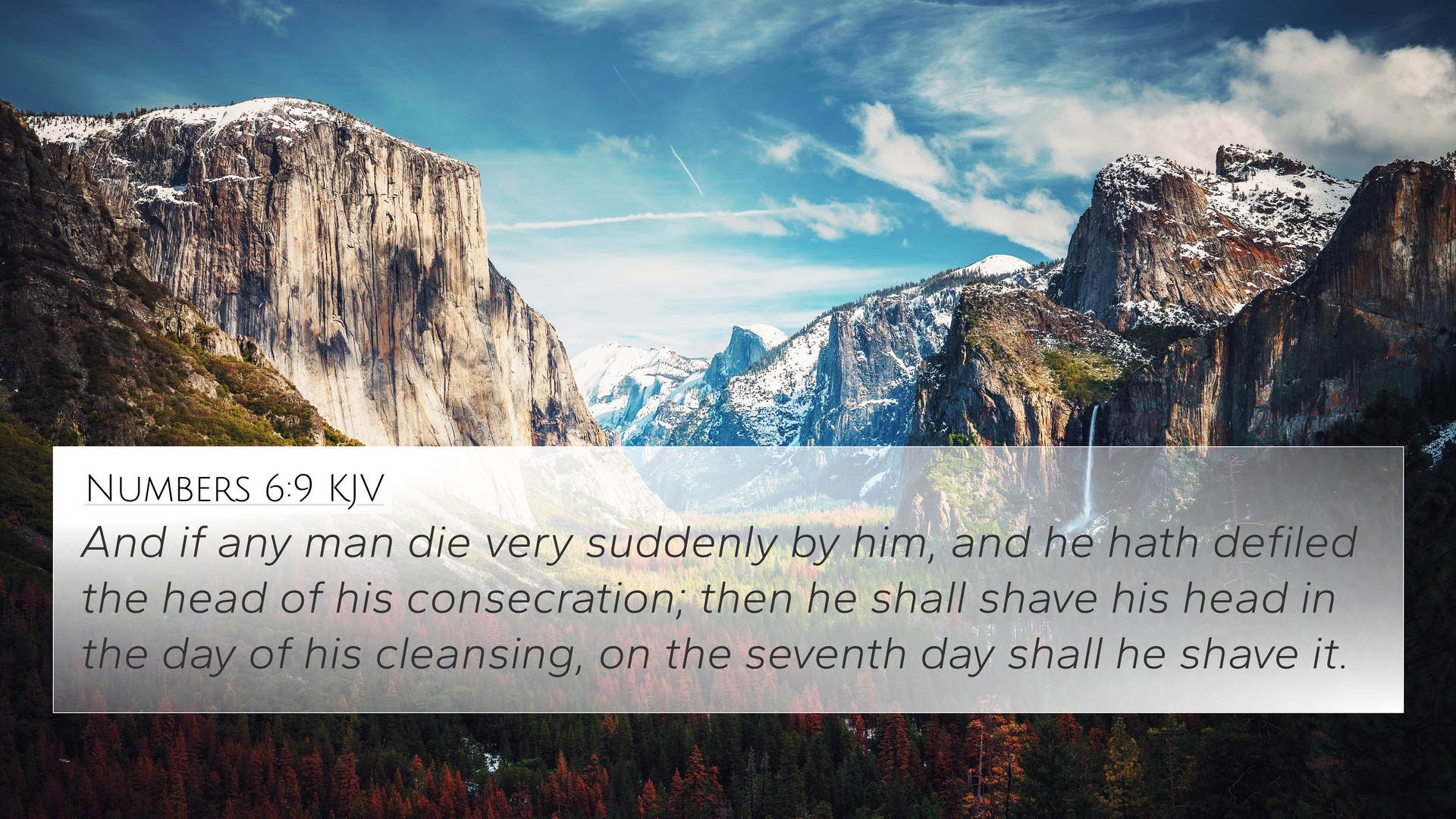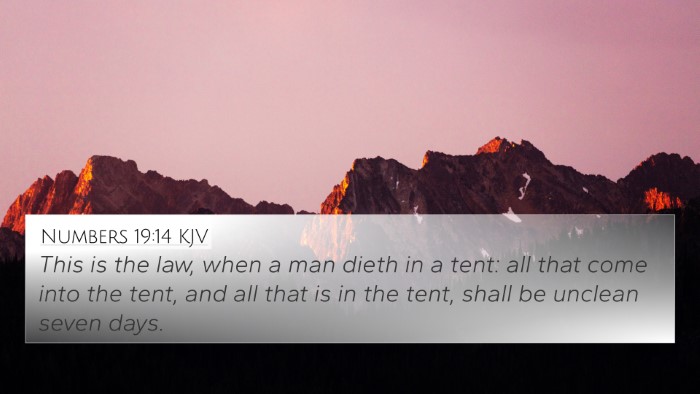Understanding Numbers 6:9
Verse: Numbers 6:9 - "And if any man die very suddenly by him, and he hath defiled the head of his consecration; then he shall shave his head in the day of his cleansing, on the seventh day shall he shave it."
Meaning and Interpretation
This verse falls within the broader context of the Nazirite vow, which outlines specific rules for those who have set themselves apart for a time of holiness and dedication to God. This particular stipulation addresses the serious implications of defilement through death, showcasing the concept of cleanliness and ritualistic purity required by God.
Insights from Public Domain Commentaries
-
Matthew Henry:
Henry emphasizes the importance of the Nazirite's vow, highlighting that the defilement caused by encountering death necessitates a purification process. The shaving of the head symbolizes a fresh start and a return to a state of ritual innocence.
-
Albert Barnes:
Barnes notes that this requirement serves to illustrate the gravity of breaking one's vow, especially in a sudden or accidental manner. The act of shaving and the timing of this cleansing ritual underscore God's standards for holiness.
-
Adam Clarke:
Clarke points out the significance of the head in the Nazarite's commitment to God. The shaving signifies a moment of intense personal reflection and repentance, allowing the individual to reestablish their commitment to the vow post-defilement.
Thematic Connections and Cross-Referencing Other Scriptures
Understanding Numbers 6:9 is enriched through various Bible verse cross-references that illuminate the themes of holiness, defilement, and restoration. Here are some relevant connections:
- Leviticus 21:1-4 - This passage also addresses issues of defilement concerning priests, emphasizing the purity required when handling sacred duties.
- Numbers 19:11-13 - Discusses the implications of touching a dead body and the required purification rituals, linking closely to the theme of defilement.
- Hebrews 7:26-27 - Reflects on the holiness of the great high priest, contrasting the temporary purification practices of the Old Testament with the eternal perfection found in Christ.
- Romans 12:1 - Calls for a living sacrifice, tying into the notion of consecrated living that the Nazirite embodies.
- 1 Peter 1:15-16 - Similar exhortation for holiness, connecting New Testament teachings to Old Testament practices.
- James 4:8 - Emphasizes cleansing oneself and the need for purity in one's walk with God, resonating with the themes of Numbers 6:9.
- Ezekiel 44:23 - Further emphasizes the need for the priests to distinguish between holy and unholy, reinforcing the significance of ritual purity.
- Galatians 5:17 - Illustrates the ongoing struggle against defilement in a spiritual sense, placing believers in a continuous need for God’s grace.
- Psalm 24:3-4 - Discusses who may ascend the hill of the Lord, reflecting the theme of purity that is central to Numbers 6:9.
Conclusion
Numbers 6:9 serves not only as a procedural guideline for those undertaking the Nazirite vow but also provides profound insights into God's view on holiness and purity. The cross-references enrich our understanding of how such principles pervade both the Old and New Testaments, fostering a comprehensive view of Scripture's interrelation.
Exploring Further Connections
For those interested in deepening their study, tools for Bible cross-referencing, such as a Bible concordance or specific cross-reference guides, are invaluable. These resources can aid in identifying connections between Old and New Testaments, drawing particularly valuable insights from the comparative study of Pauline epistles and exploring thematic Bible verse connections.
Suggested Study Methods
Utilizing a Bible cross-reference system can enhance your understanding of how various scriptures interact. One effective method is to examine Bible verses that relate to each other thematically, as well as to conduct a comparative analysis of linked biblical texts.
Final Thoughts
Through careful contemplation of Numbers 6:9 and its connections, believers can appreciate the comprehensive narrative of Scripture and the ways in which it guides their spiritual journey.








